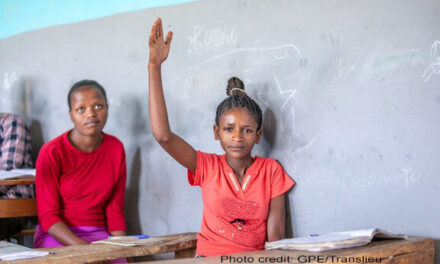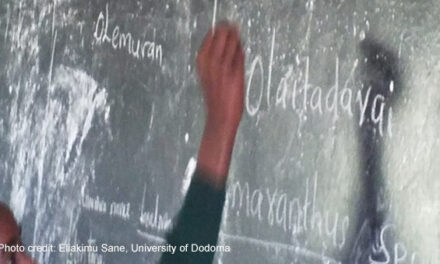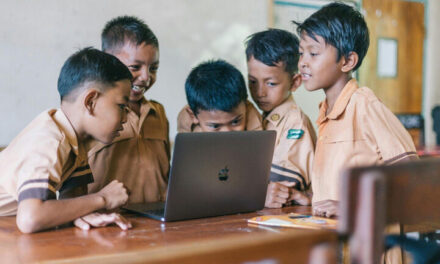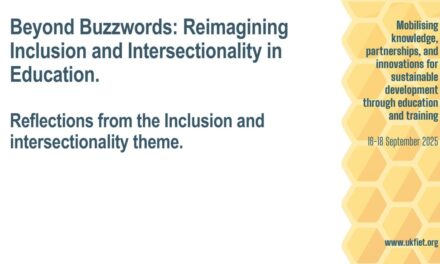Highlights from one of the theme convenors of one of seven UKFIET 2025 conference themes, ‘Learner safety and wellbeing’: Danielle Cornish-Spencer, Social Development Direct.
This year’s UKFIET conference challenges practitioners and researchers to move beyond presenting success stories. It asks: So what now? That question is transformative in itself, but transformation must begin with safety and wellbeing.
The Learner Safety and Wellbeing theme at UKFIET during this time is unapologetically political, particularly at this moment of global ODA retrenchment. Around the world, we are witnessing the systematic deprioritisation of education and gender justice, both in funding and policy. The rising tide of anti-gender and anti-education narratives is more than troubling.
Turning away from girls’ education, from safeguarding, from psychosocial support, protection systems, and survivor care is not a neutral act. It is a political choice, and it will have far-reaching consequences.
When we defund safety and wellbeing in education, more students and teachers will be forced into unsafe environments. We will see lower attendance, learning loss and deepening trauma. Educational outcomes will decline, dropout rates will increase, transitions will stall and economic instability will grow. Where inequality deepens, the world becomes even less safe.
We know that weak child protection leads to poor educational outcomes, and that universities are often targeted in violent conflict. Those who experience violence are more likely to face or perpetrate harm later in life. We also know that exposure to violence leads to collective or societal trauma, which damages social cohesion and increases vulnerability to extremism. The evidence is not in doubt.
This theme demands that we connect the dots between violence, inequality, education and global futures. It pushes back against the dismantling of systems designed to protect and uplift learners in all their diversity. And it asks the hard questions: Who gets to feel safe while learning or trying to learn? Whose trauma is ignored? Whose healing is resourced? Whose conceptualisation of safety and wellbeing is promoted?
This year’s Learner Safety and Wellbeing sessions
This year’s contributions dare to centre the bodies, minds and rights of learners, especially those living in conflict, displacement or systemic oppression. This year’s papers offer real-world solutions that are grounded, tested and community-driven. They challenge the invisibility of harm in education and bring practical action to the forefront. From youth-led safeguarding for children with disabilities in Sierra Leone, to decolonised ubuntu pedagogy in Cameroon, to support learners affected by conflict and displacement, to trauma-informed distance learning in Niger, where education facilities and education itself are under attack – these are not theoretical models; they are living acts of resistance and care.
Our theme will include five full paper sessions:
Session 1: Education in Conflict and Displacement: Advancing Learner Safety, Wellbeing and Outcomes through Practice-Based Insights. Here, papers draw from experience across conflict-affected communities around the world in how those communities are reshaping education around safety, healing, and continuity.
Session 2: Safety and Wellbeing in Education: Learners, Teachers and Systems as Drivers of Change. This session explores how education systems can move beyond surface-level commitments to safety and wellbeing, embedding them as foundational principles across classrooms, schools and communities. Drawing on research and practice from Ghana, Ethiopia, and multi-country contexts including India, Jamaica, Uganda and the UK, the three papers highlight practical, scalable strategies to address gender-based violence, shift harmful disciplinary norms, and build protective, inclusive learning environments. Together, these papers offer insight into what it takes to transform safety and wellbeing from policy rhetoric into lived educational reality.
Session 3: Social and Emotional Learning Across Curriculum, Accelerated Education and Classroom Practice. This session explores SEL beyond ‘buzzwords’ as a tool for resistance, happiness and survival. From: culturally contextualising the happiness curriculum in India; to exploring integrating SEL into Accelerated Education Programmes for younger children affected by disrupted learning in Ethiopia, Chile and Zimbabwe; to working with teachers to embed reflective and restorative approaches to learner and teacher wellbeing in Kashmir.
Session 4: Reclaiming Local Practice in Learner Safety and Wellbeing. This session presents bold work challenging Western frameworks and reclaiming local knowledge, religious education, and indigenous pedagogies as central to peace and wellbeing, including exploring ways to leverage education for peacebuilding through decolonial praxis in rural India and through challenging secularist biases in education in the Boko Haram impacted regions of northern Nigeria.
Session 5: Learners, Teachers and Systems as Drivers of Change. This session explores how schools in Sierra Leone, Pakistan and northwest Syria are tackling violence through inclusive, rights-based approaches. Focusing on children with disabilities, corporal punishment and weak safeguarding systems, the papers highlight practical strategies to make schools safer, more responsive and more just.
We also have quick-fire papers from across the world and three symposia exploring research and papers for education in conflict and protracted crises; leveraging evidence to address gender-based violence in higher and tertiary education; and addressing school-related violence in fragile and crisis-affected settings.
I am personally also looking forward to our programme of creative sessions, including a session on ‘Navigating Field Research in Crisis: A Day in the Life of a Researcher’, which explores the challenges of conducting field research in a country affected by conflict and displacement through an immersive experience drawing from researchers’ diaries working in Ukraine.
A call to action: starting with discourse
This theme is a call to action: for systems that protect, for learning spaces that support learners, and for futures where education helps their young people to thrive. Join us and learn from colleagues driving change around the world. Add your voice to the urgent conversation on what’s next for learner safety and wellbeing.
Myself and co-convenor, Juliet Millican, look forward to seeing you at this year’s conference, where this conversation belongs to all of us, and where both the sessions and the margins offer space to collectively advance a vision of education grounded in justice, care and courage in this most challenging of times for our sector.




